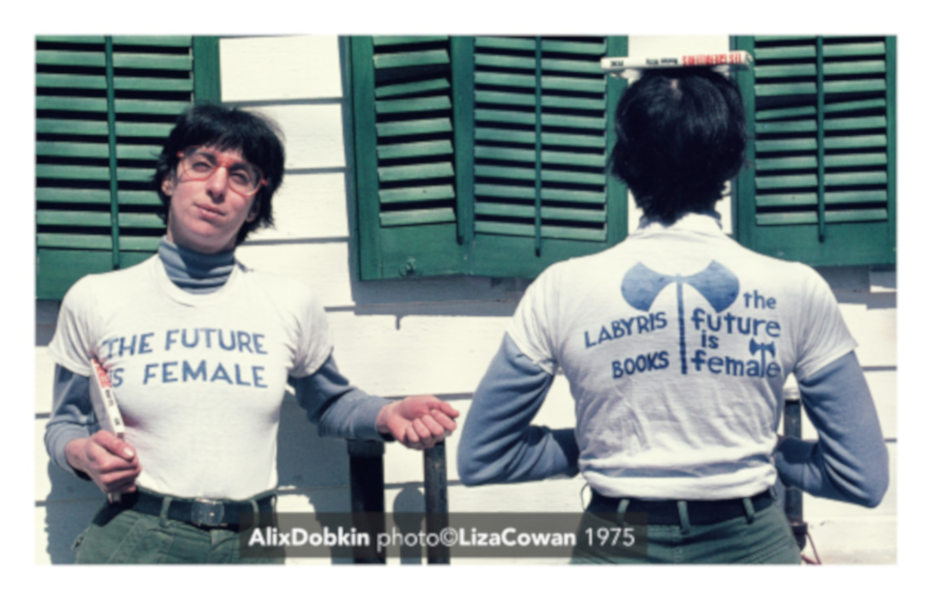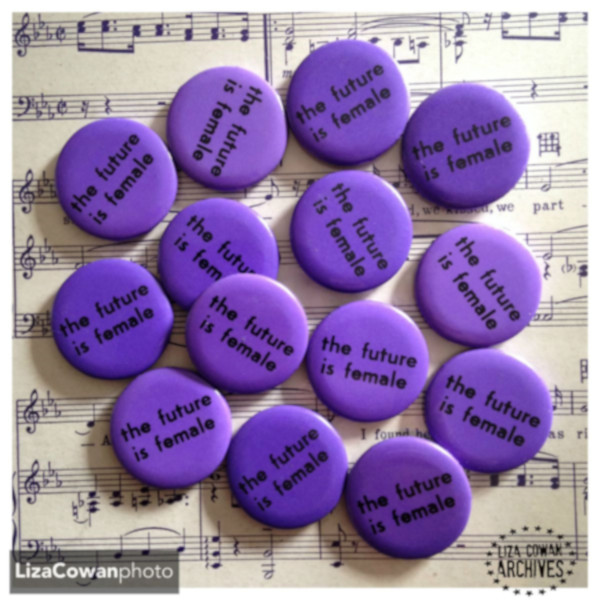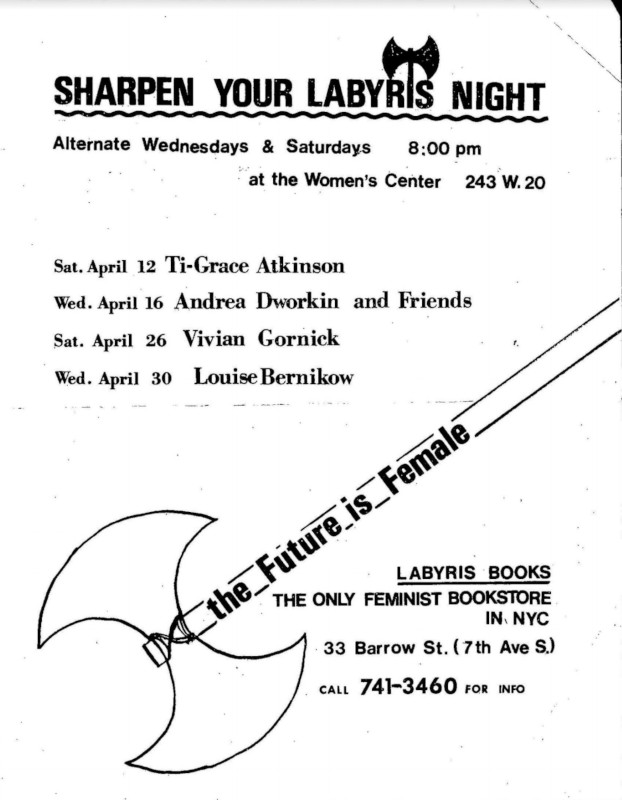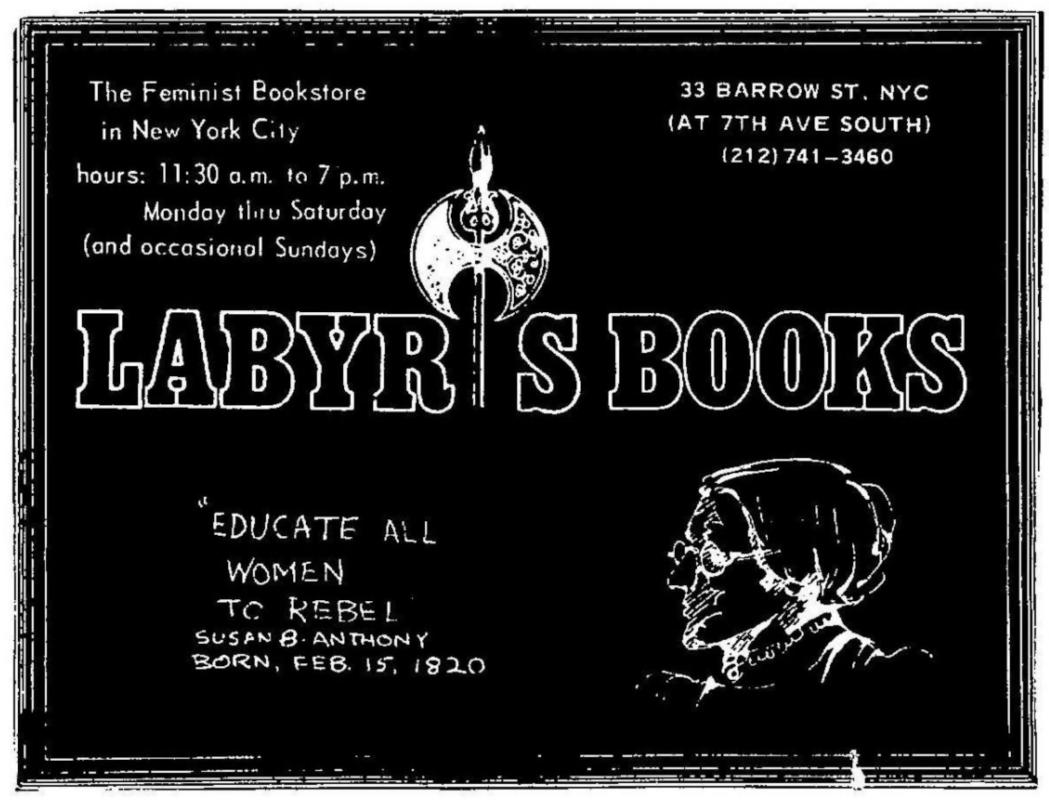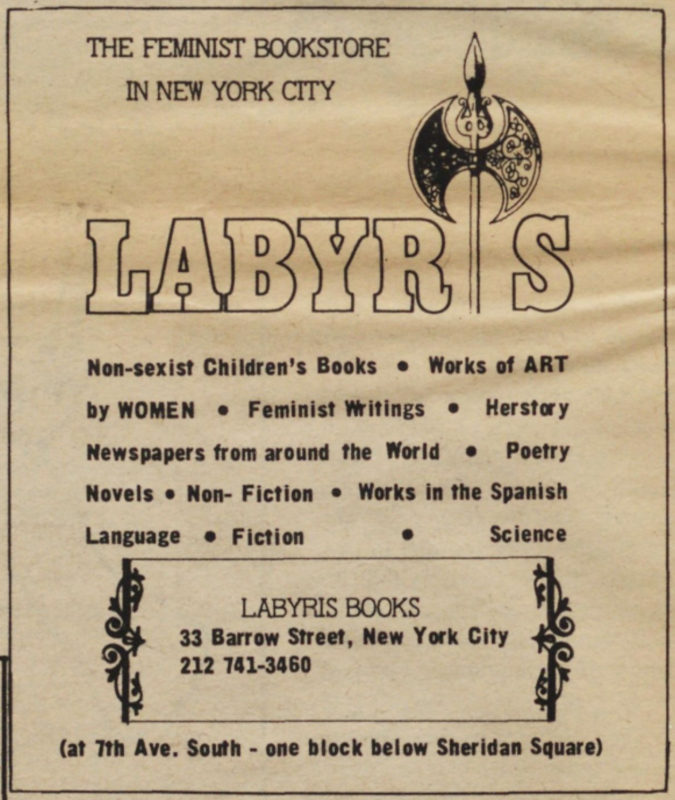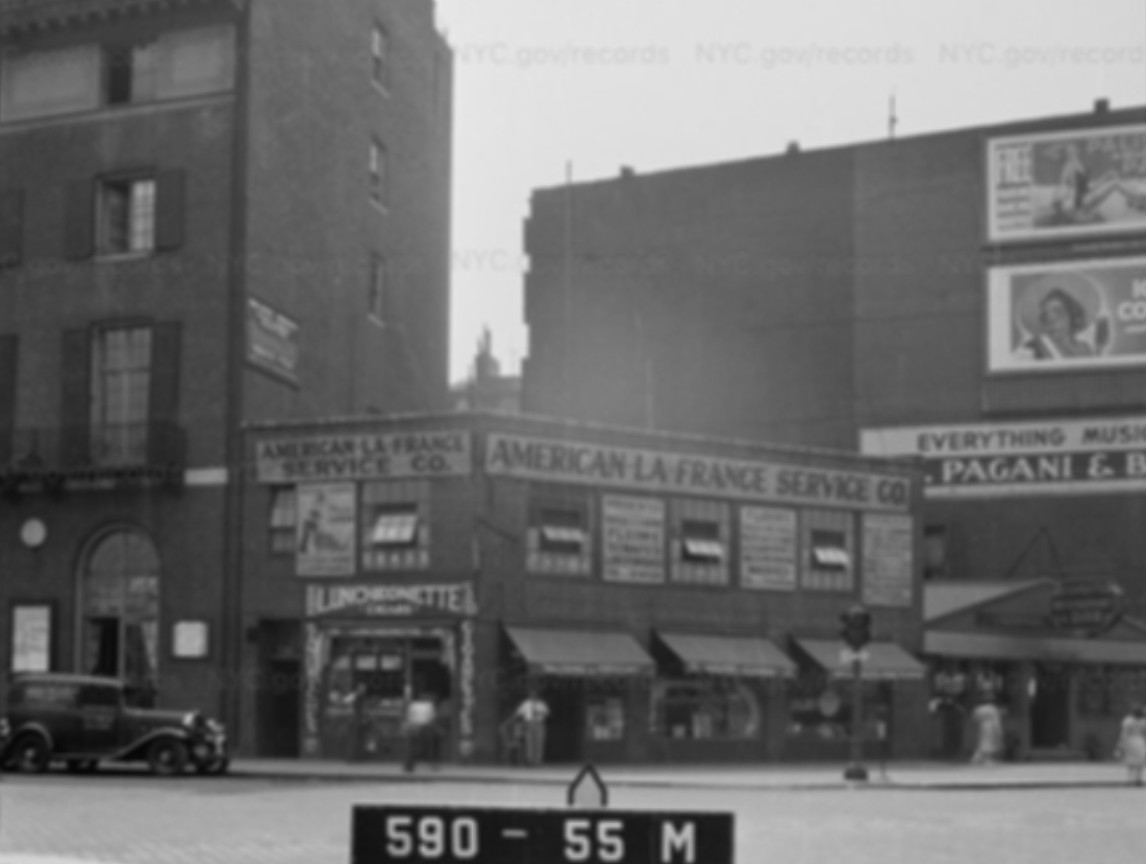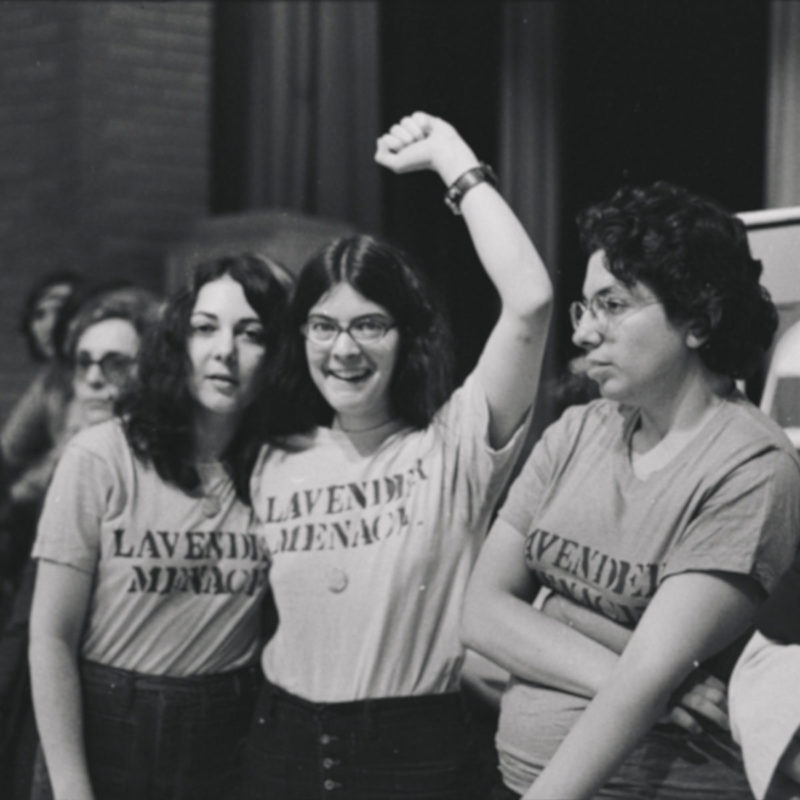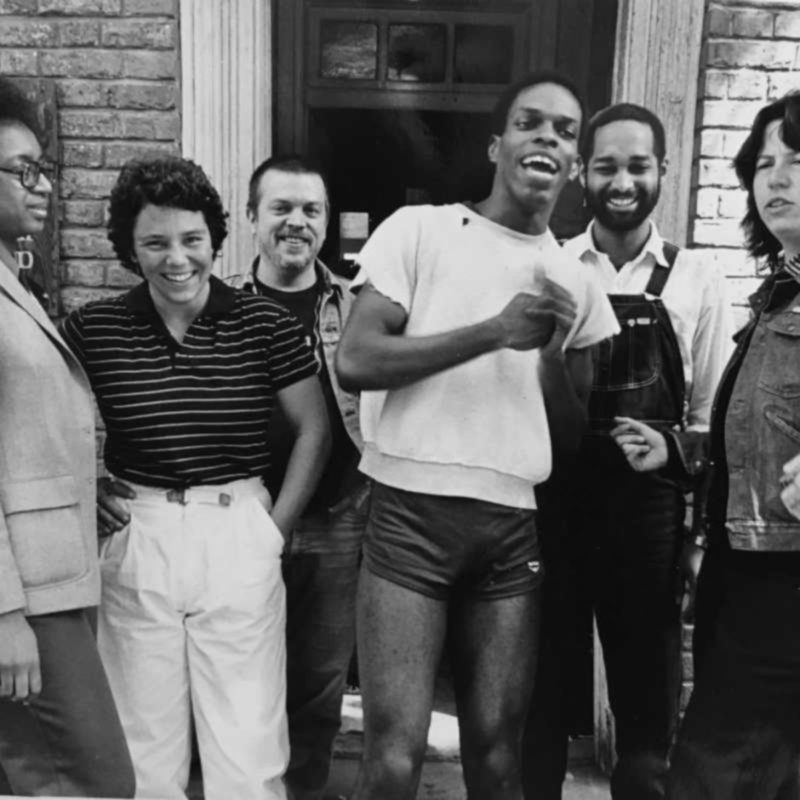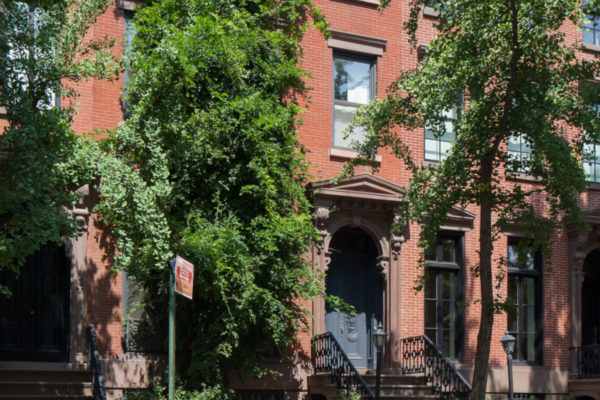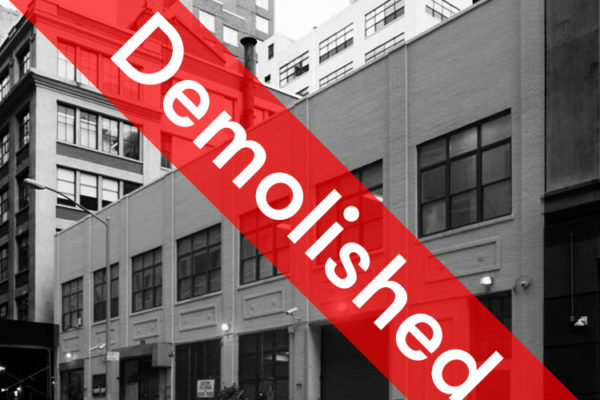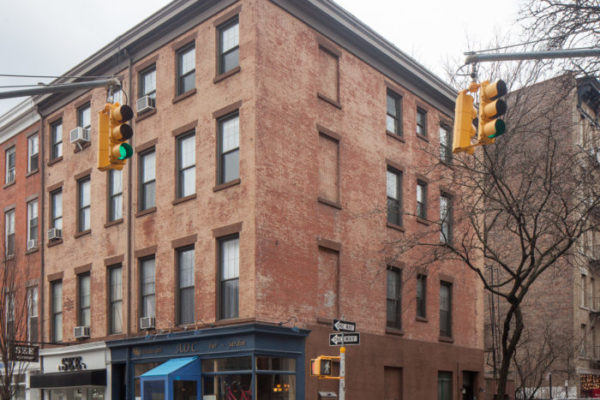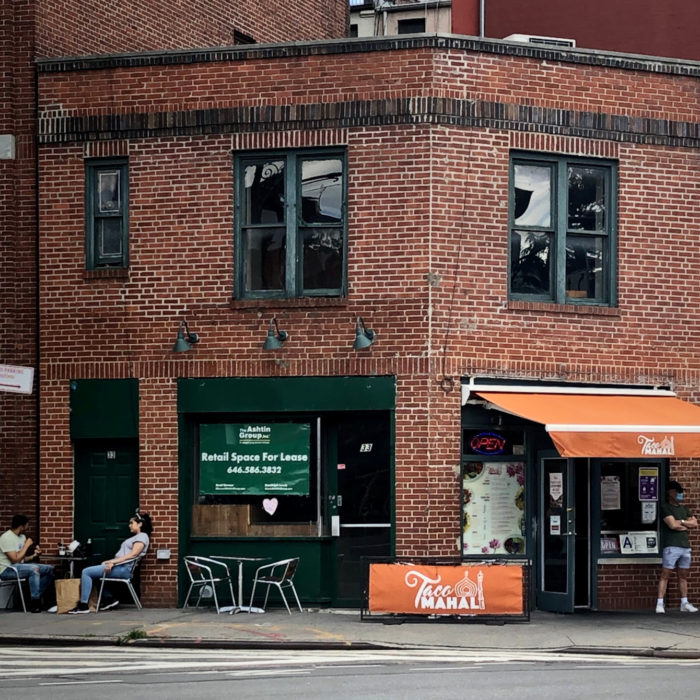
Labyris
overview
Labyris, where the “The Future is Female” slogan was coined, was the first feminist bookstore in New York City.
Owned and operated by lesbians from 1972 to 1977, this bookstore sold texts by and for women and served as a radical lesbian feminist gathering space.
On the Map
VIEW The Full MapHistory
Lesbian and feminist activists Marizel Rios and Jane Lurie opened Labyris, New York City’s first feminist bookstore, in September 1972. According to customer Bonnie Bluh, “this bookstore came directly out of the revolutionary movement.” In January 1971, Rios and Lurie participated in the takeover of an abandoned building at 331 East 5th Street (since demolished) in the East Village. For two weeks, feminists ran a women’s center, known as the Fifth Street Women’s Building, there. Although the police shut this center down, this experience contributed to Rios and Lurie’s decision to open Labyris as a lesbian space at the corner of Barrow Street and Seventh Avenue South, right next to Greenwich House.
The store was named after the labrys — a double-sided ax used by female Amazon warriors that became a symbol of lesbian strength and self-sufficiency in the 1970s. The store carried non-sexist children’s books, texts on lesbianism, and books for Women’s Studies courses as well as a small selection of leather goods, ceramics, and jewelry by and for women. It only had a small table and a bulletin board, but Bluh described Labyris as “a place where women can go. To talk. To have their lunch. To exchange ideas.” Frequent topics of discussion at Labyris were lesbianism and racism, as evidenced by talks with authors such as Audre Lorde. Events were also held at the Women’s Liberation Center in Chelsea.
Unlike later feminist bookstores such as Womanbooks, Labyris gained a reputation for exclusivity. An ad in Clone encouraged women to “drop-in,” but feminist bookstore owner and activist Carol Seajay stated that Labyris was a “ring a doorbell, and they decide if they’d let you in or not place.” This reputation derived from the fact that lesbian separatists led and frequented the store. Lesbian separatism was a radical version of lesbian feminism which encouraged women to reject heterosexuality in order to fully separate from patriarchal society. Yet, to artist Liza Cowan and other Labyris supporters, lesbian separatism “was a way to figure out what it meant to be a woman, without having to bother with men telling you what you could not say.”
The bookstore’s slogan, “The Future is Female,” derived from the lesbian separatist movement. Cowan stated that, “If we are to have a future, it must be female, because the rule of men — patriarchy — has just about devastated life on this beautiful little planet.” Cowan took a photo of her girlfriend, musician Alix Dobkin, in a Labyris shirt with this slogan for her slideshow called “What the Well Dressed Dyke Will Wear.” The shirt and the slogan reemerged in 2015, becoming a popular feminist fashion and political statement that has sparked debates over gender.
More than just a feminist bookstore, Labyris functioned as a radical feminist ideological space. It provided emotional support for women in times of need and confirmed our anger, strength and love.
Labyris closed in 1977 due to a lack of sales — a consequence of women hanging out in the store without purchasing merchandise. Still, while in operation, Labyris was a vital part of the community and also helped affirm the need for more lesbian spaces in the city.
Entry by Emily Kahn, project consultant (July 2020).
NOTE: Names above in bold indicate LGBT people.
Building Information
- Architect or Builder: Samuel H. Brooks
- Year Built: 1927
Sources
Ann T. Powers, “Womens’ Culture- Where It’s At,” Clone, 1974, p. 10.
Bonnie Bluh, “Empty Shelves at Labyris,” Majority Report, April 5, 1975.
“Bookstores,” Gay News, November 20-December 3, 1975, p. III.
Charlotte Gush, “Casting Spells for a Female Future with 70s Lesbian Separatist Liza Cowan,” i-D, Vice, December 7, 2015, bit.ly/3dMQv17.
“The Future is Female in The Washington Post,” DYKE, A Quarterly, February 9, 2017, bit.ly/2YOveQ8.
Kristen Hogan, “Dykes with a Vision,” in The Feminist Bookstore Movement: Lesbian Antiracism and Feminist Accountability (Durham, NC: Duke University Press, 2016).
“Labyris Bookstore Shuts Doors,” Sister Courage 2, no. 7, 1977, p. 15. [source of pull quote]
“Lesbian Space Zap,” Tribad: A Lesbian Separationist NewsJournal 2, no. 5 (March-April 1979), p. 13.
Liza Cowan, “A Feminist Urban Action Jan 1-13th 1971, 1992,” written as part of Diane Davis’ Urban Social Movements Course at the New School for Social Research, bit.ly/2AiglMG.
Liza Cowan, “The Future is Female- the Button,” Dyke, A Quarterly, September 25, 2015, bit.ly/2YOveQ8.
Marisa Meltzer, “A Feminist T-Shirt Resurfaces from the ‘70s,” The New York Times, November 18, 2015, nyti.ms/3gdtTbz.
“Multiple Classified Advertisements,” Majority Report, February 1973, p. 15.
Do you have more information about this site?
This project is enriched by your participation! Do you have your own images of this site? Or a story to share? Would you like to suggest a different historic site?
